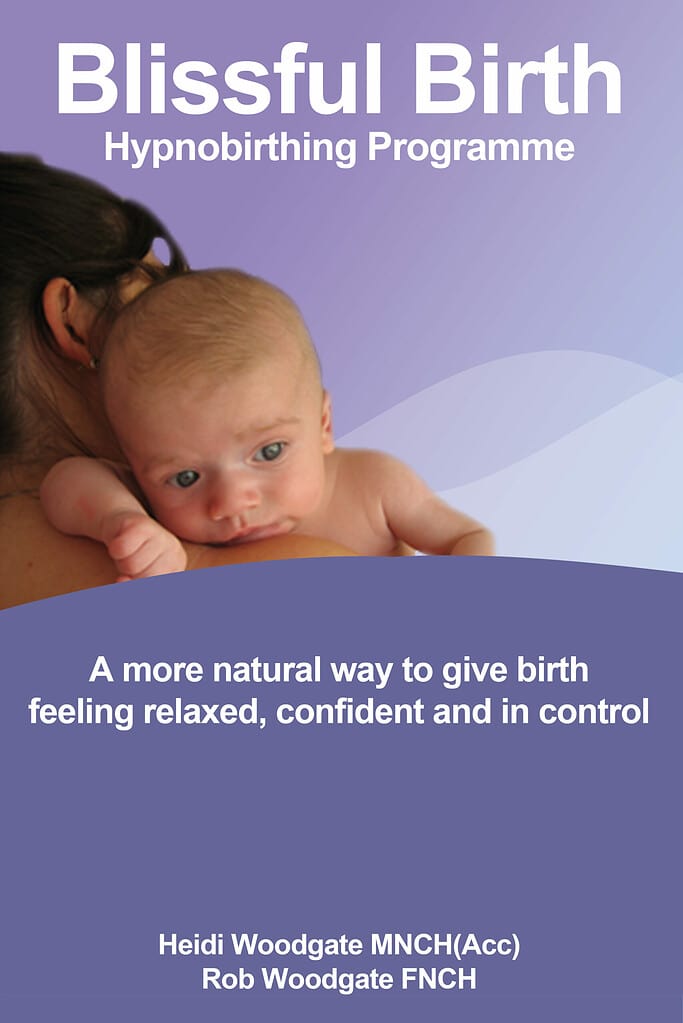Pregnancy can be a beautiful and transformative time in a woman’s life, but it’s no secret that it can also come with its fair share of challenges.
From physical discomfort to emotional stress, there’s no denying that growing a tiny human inside your body can be a rollercoaster of emotions.
That’s why many women turn to pain management options or complementary and alternative therapies like hypnosis to help ease the journey.
But what exactly is hypnosis and how can it help with pregnancy? Is it safe for both the mother and baby? These are important questions that deserve thoughtful answers.
In this article, we’ll take a closer look at hypnosis for pregnancy, exploring how it works and examining the potential benefits of it.
Whether you’re a mom-to-be considering hypnosis or simply curious about this unique approach, we’ve got you covered. So sit back, relax, and let’s dive in!
Table of Contents
What is hypnosis?
Hypnosis is a state of deep relaxation and focused attention that allows the mind to be more open to suggestion. In other words, it is a way to access your subconscious mind and help you make positive changes in your thoughts, feelings, and behaviors.
Hypnotherapy is the use of hypnosis to achieve a positive outcome – and it is commonly used to alleviate anxiety, depression, and chronic pain – and is now gaining popularity as a natural method to ease labor and delivery pain.
In the context of pregnancy, hypnosis can be used to help expectant mothers manage the physical and emotional challenges that come with pregnancy and childbirth.
During pregnancy, women often experience a range of physical and emotional changes, including morning sickness, fatigue, and fear of childbirth.
Hypnosis can help women manage these symptoms and relieve stress and anxiety by inducing a state of deep relaxation and promoting positive thinking and visualization.
By using hypnosis techniques, expectant mothers can learn to relax their minds and bodies, reduce stress and anxiety, and visualize a positive birthing experience.
How does hypnosis work?
As a hypnotherapist, I often get asked the question: how does hypnosis work? The answer is that hypnosis works by tapping into the power of the subconscious mind.
The subconscious mind is the part of the mind that operates outside of our conscious awareness. It is responsible for storing our beliefs, memories, and emotions, and it also plays a role in regulating our bodily functions.
For instance, during pregnancy, hypnosis can be used to help expectant mothers reduce anxiety, manage pain, and prepare for childbirth. By accessing the subconscious mind, hypnosis can help individuals tap into their innate ability to relax and remain calm, even in the face of physical and emotional stressors.
The mind-body connection that hypnosis creates is crucial for managing the physical and emotional challenges that come with pregnancy.

There are techniques and methods used in hypnosis for pregnancy, including:
Relaxation techniques
These techniques involve inducing a state of deep relaxation, which allows the mind and body to become more receptive to positive suggestions. Examples of relaxation techniques include progressive muscle relaxation and guided imagery.
Visualization
Visualization involves creating mental images of positive outcomes or experiences. During pregnancy, guided visualization can be used to help women imagine a positive and comfortable birthing experience, and to cultivate feelings of calm and relaxation.
Self-hypnosis
Self-hypnosis involves inducing a hypnotic state on one’s own, through the use of relaxation and visualization techniques. Self-hypnosis can be a useful tool for women during pregnancy, as it allows them to access their subconscious minds and internalize positive beliefs and behaviors on their own.
Positive affirmations
Positive affirmations are statements that promote positive beliefs and attitudes. During hypnosis, positive affirmations can be used to help women replace negative thoughts or beliefs with positive ones, such as “I am capable of giving birth naturally and comfortably.”
By using hypnosis interventions to cultivate a deep sense of relaxation and focus, expectant mothers can reduce the risk of complications, improve their overall well-being, and prepare themselves for a positive childbirth experience.
Is hypnosis safe during pregnancy?
Yes, hypnosis is generally considered safe during pregnancy. In fact, many women find it to be a helpful tool for managing the physical and emotional challenges that come with pregnancy and childbirth.
Take Kate Middleton for example. She used hypnobirthing for all three pregnancies. Her experience with hypnobirthing was positive, and she had nothing but good things to say about it.
Additionally, hypnosis is a non-invasive and drug-free method of pain relief, making it an appealing option for a mother to be who wish to avoid medication.
However, it’s important to work with (or use a program written by) a qualified hypnotherapist who has experience working with pregnant women and to ensure that your health care provider is aware of your decision to use hypnosis.
This can help ensure that any potential risks are identified and addressed, and that you receive the best possible care throughout your pregnancy and childbirth journey.
What are the benefits of hypnobirthing?
Hypnobirthing is a childbirth education approach that emphasizes the use of self-hypnosis and relaxation techniques to promote a calm and positive birth experience.
It is based on the premise that fear and tension can lead to a more difficult and painful birth experience, and that by releasing those negative emotions and cultivating a state of relaxation, women can give birth in a more natural, comfortable, and empowered way.
And the best part, it can be used even if you are planning to give birth in hospital.
Here are some benefits of hypnobirthing:
Reduced fear and anxiety
Hypnobirthing classes teach women to release fears and anxieties about childbirth, replacing them with positive affirmations and visualization techniques. This helps to create a calm and relaxed state of mind, which can lead to a smoother and more comfortable birth experience.
Increased confidence
By learning and practicing hypnobirthing techniques, women can feel more confident and in control of their bodies during childbirth. This can lead to a more positive and empowering birth experience, and can also help women to feel more confident and empowered in their roles as new mothers.
Partner involvement
Hypnobirthing classes often involve birthing partners in the learning and practice of techniques. This helps partners to feel more connected to the birthing process, and to be better able to support and assist women during labor and delivery.
Postpartum recovery
Hypnobirthing can help women to feel more relaxed and confident during the postpartum period, which can facilitate bonding with their new baby and a smoother transition into motherhood.
When should I start practicing hypnobirthing?
Hypnobirthing is a technique that requires practice and dedication to master, so it is recommended that expectant mothers begin practicing as early as possible during their pregnancy.
This allows them to become comfortable with the techniques and develop a deeper level of relaxation and focus, which can be extremely beneficial during labor and delivery.
If you are interested in hypnobirthing but not sure where to start, there are many resources available.
One such resource is Blissful Birth, a hypnobirthing program that can be downloaded and used in the comfort of your own home.
This program is designed to help mothers prepare mentally and emotionally for a calm and positive childbirth experience.
With the help of Blissful Birth, you can learn the techniques needed to manage labor pain, reduce anxiety, and feel empowered throughout your labor and delivery.




